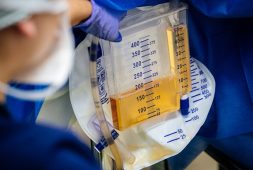A Possible Cure For Pre-Eclampsia, The Most Common Deadly Pregnancy Complication, Already Exists For Treating Alzheimer’s

A protein long associated with Alzheimer’s disease has recently emerged as a potential breakthrough in addressing one of the most common causes of life-threatening childbirth complications. In an exciting development, a drug has shown promising curative effects in mice, offering new hope for expectant mothers.
Pre-eclampsia, a pregnancy complication affecting up to 8% of pregnancies worldwide, is a significant contributor to maternal and fetal mortality. This condition is primarily characterized by premature delivery, complications related to the placenta, and oxygen deprivation.
The intriguing connection between pre-eclampsia and a protein linked to Alzheimer’s was unveiled during the quest for a pre-eclampsia treatment by researchers at Brown University, namely Surendra Sharma and Sukanta Jash. They stumbled upon a key marker associated with pre-eclampsia, which was also present in the brains of individuals diagnosed with Alzheimer’s disease.
The protein in question is known as cis P-tau, a toxic amyloid that accumulates in the brains of those afflicted with conditions like strokes, Alzheimer’s disease, traumatic brain injuries, and various cognitive degenerative disorders. This association was initially identified by Drs. Kun Ping Lu and Xiao Zhen Zhou from Western Ontario University.
Dr. Zhou was in the midst of conducting trials on an antibody drug that targeted cis P-tau while sparring other crucial proteins. Intriguingly, Drs. Sharma and Jash pondered whether this very antibody could serve as a potential remedy for pre-eclampsia. To explore this idea, they conducted tests on mouse models, and the results were nothing short of remarkable.
Dr. Sharma told the Western University press, “In this study, we found the cis P-tau antibody efficiently depleted the toxic protein in the blood and placenta, and corrected all features associated with pre-eclampsia in mice.”
“Clinical features of pre-eclampsia, like elevated blood pressure, excessive protein in urine, and fetal growth restriction, among others, were eliminated and pregnancy was normal.”
This groundbreaking collaboration was facilitated by the meeting of Lu and Sharma at Brown University in 2019. Lu was invited to deliver a lecture on his research, which laid the foundation for a partnership between the researchers at Western Ontario and Brown.
Lu admitted, “Science surprises us. I had never thought of working on finding a therapy for preeclampsia. It also shows that a collaboration can be transformative.”
Dr. Sharma, along with his team at Brown University, has been diligently working on developing an assay for the early detection of pre-eclampsia and devising the therapies to treat the condition. The recent findings from this study have provided renewed optimism, bringing them a step closer to their overarching goal.



